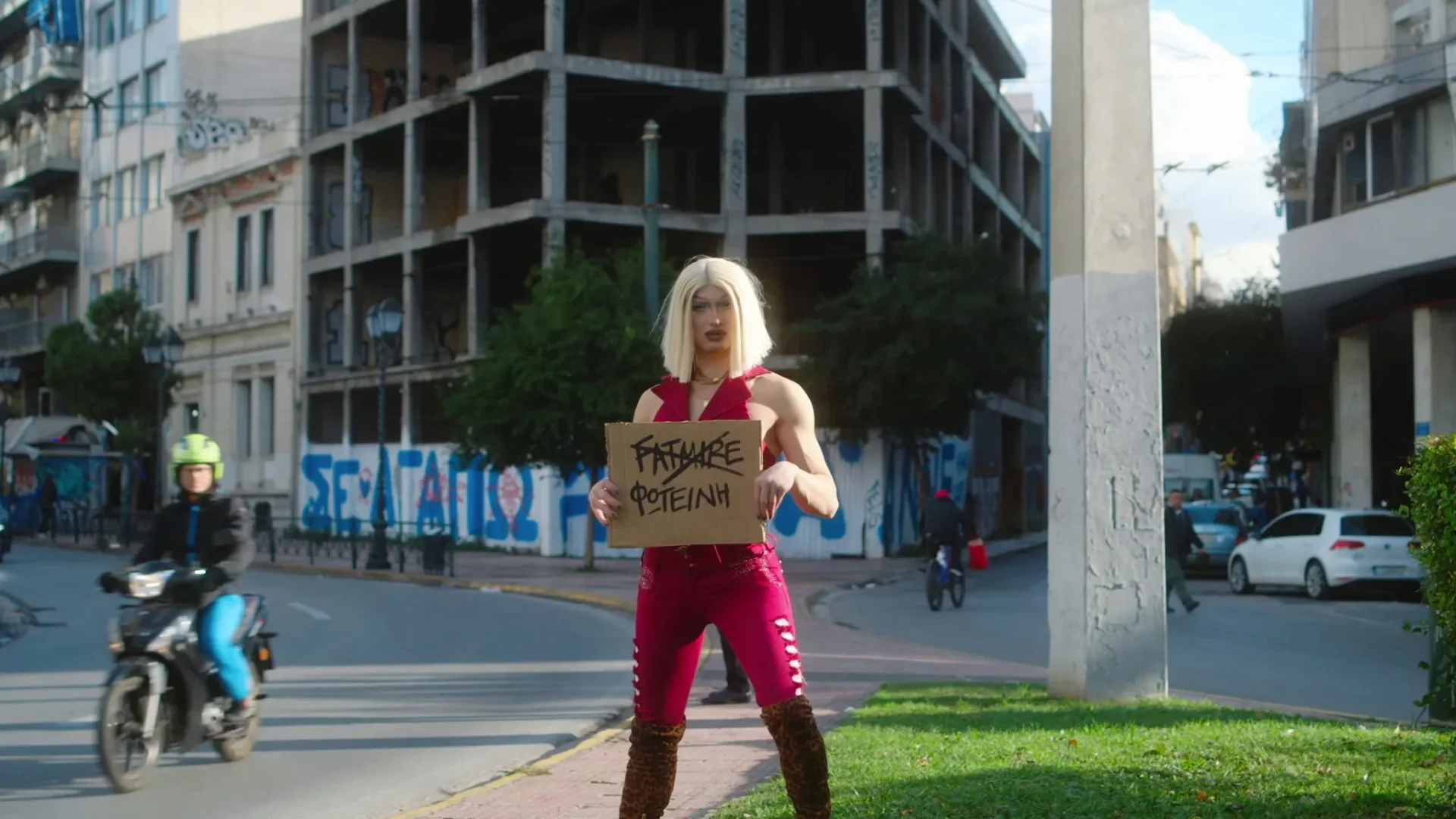Avant-Drag! (2024) ‘IFFR’ Movie Review: When Samuel Smiles advocated that the progressive development of society relies on the independence of the self-care of the individual (in the far 1859—long before commercialism invaded lifestyle propagandas), it was not to favor individualism but to defend characters in a bottom-top approach and to amplify their contribution to society’s prosperity. In this respect, the act of caring for oneself extends across communal caring and takes political dimensions.
The idea we have now on self-care is of a different nature; it adheres to obsessive betterness and performativity propelled by redundancy and narcissist individualism. However, self-care, stripped from consuming intentions, has been integral to armoring civil rights movements or political organizations (e.g., The Black Panther Party) begotten by marginalized groups. Fragile communities would assemble out of the common (oppressive) experiences and build support systems that lead to grounded transformations. Self-help, in this sense, is an empowerment that can take the form of self-defense against any heteronormative system. Self-help, in this sense, is acceleration, aiming for active civic engagement that demands not just attention but further collective transformation.
I mention this as a reminder of the values we often confuse for frivolity within the plethora of fashion guidance we are subjected to (commonly known as social media influences or self-help readings). A reminder, maybe squeezed to fit in the purpose of these words, but that is what I received synecdochically while watching ‘Avant-drag!’, a documentary that provides a series of portraits of ten drag queens reigning in the capital of Greece, Athens.
No introductions are needed. As everywhere else in the world, these artists employ ingenious (self) destruction and transgressive behavior to convey disagreement or discomfort. They might do so within the safety of their domestic environment or around the hazardous night streets of this busy city. They build iterations of self-portraits in their living rooms or stand loud and tall, like pink trees, in the middle of a frenetic traffic jam.
Athens is a city with no crossroads and no cultural limits. But it’s also a place inflicted with depressing narratives of static traditions that sum up extreme gender division and cult affinities with religion. Conservatism here wears a thick mustache and lights candles of hope and redemption to the Virgin Mary. While racism covertly lives under the notion of nationalism (or ‘Hellenism’ as so sharply queen Aurora Paola Morado names it in the film). This setting is ideal for painting the picture of the sufferings and blooming creativity of the LTBQ+ community, as well as for vocalizing the exponential urgencies lying beneath.
Director Fil Ieropoulos chose a normative documentary format to narrate the extraordinary stories of his characters. The film is divided into chapters, each holding a close-up of a drag queen. Within a fair amount of time, each of them gets to recount their intimate thoughts or stories but also present their fantastic alter ego. Provocative imageries, toned up with original, customized vogue, pop up on the screen while the person behind the adopted character shares poignant and acute observations and positions.

Every chapter culminates with a short VHS aestheticized clip featuring the persona of the chapter performing their visual or intellectual ideas in the form of video clips or TV ads. The transition between the chapters is the moment when a voice-over provides an abstracted meta-examination of the story, which helps to bridge the personal with the cultural context before transitioning to the next character. Writer Foivos Dousos has done an excellent overview of the conditions upon which these characters have built their political substances and resistance.
At points, the text ascends to illuminating poetics so fitting with the local scene of the art of drag that becomes another revolutionary pillar among the queens. The interpretation of the text, assigned to actress Marisha Triantafyllidou, inspires a theatrical (non-dramatized) rhythm yet is full of subtle emotions. Cliché, but it does capture the essence of the origins of drag (no surprise—it’s attributed to Ancient Greek theatre.)
That said, the film follows some of Greece’s most prominent drag queens. Figures like Kangela Tromokratisch have been important for disseminating the drag culture to wider audiences and encouraging younger generations from less stimulating environments (i.e., the provinces) to experiment with the discomfort of their given identity. They might have been instrumentalized by (art) institutions aiming to participate in the popularisation of drag shows, but they lack no conscience. They know well the context they step in, even if they do it in twelve-inch heels. They are particularly literate figures. To this matter, the film maintains a good balance between positioning and entertaining. I mean the latter in good humor, as every scene is full of imagination and playfulness. Although there is nothing new visually, this picture, due to the originality of the characters, can satisfy even the most consuming audiences of the scene.
Throughout the stories, certain collective traumas come to provide a solid political perspective. The killing of Zackie (Zak Kostopoulos) in daylight polarised the Greeks in 2018, and it is still a tormenting subject for members of the community and beyond. It also indicates the fear and hate this community faces, and when placed next to the extravagant drag performances, it becomes a story of revolution.
This is pretty much the direction ‘Avant-drag!’ takes when close to the end, it invites all the characters to dinner. At this moment, the artists break from the joyous shelter of magical realism they have adopted to run their lives, and while still wearing their personas, they share sober reflections of their lives as members of a community, a political movement. They might not know it, but they are in the course of reconfiguring the politics of care as an ‘inherently interdependent survival strategy.’
Avant-Drag! screened at the International Film Festival Rotterdam 2024.
Avant-Drag! (2024) Documentary Links: IMDb


![The Peanut Butter Falcon [2019]: ‘BFI-LFF’ Review – A funfair Caterpillar ride](http://www.highonfilms.com/wp-content/uploads/2019/10/peanut-butter-falcon-review-768x512.jpg)


![#Homecoming [2022] SonyLIV Review: A Generic Reunion Drama elevated by Impressive Self-awareness and Nostalgia](http://www.highonfilms.com/wp-content/uploads/2022/02/Homecoming-2022-2-768x512.jpg)
